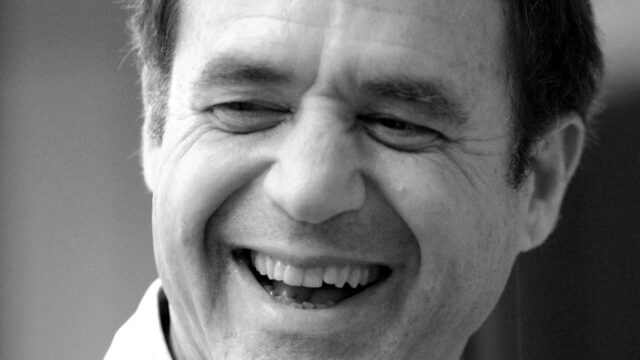William Langewiesche was funny. When people talk about him now—he died this week from cancer at age 70—they will invariably mention the serious nature of his work. After all, this is a man who wrote 20,000-word articles about the Iraq War and a National Book Critics Circle–nominated book on the rubble cleanup from Ground Zero. Over his long career, he was a finalist for the National Magazine Award 10 years in a row. He won twice. It should go without saying that none of those nominations had anything to do with humor.
But if you had a keen eye, you couldn’t miss the delight William routinely took in poking fun at the absurdity of life. In his article about Red Bull–sponsored parachutist Felix Baumgartner, “The Man Who Pierced the Sky,” he took a shot at the entire country of Austria for reasons only he understood.
“Red Bull is an Austrian company,” he wrote, “and a big deal in that town.”
While he was researching his article “Anatomy of a Miracle,” about US Airways flight 1549 that famously ditched in the Hudson River after colliding with a flock of geese, he once called me at the offices of Vanity Fair—where I had worked for William and his editor, Cullen Murphy, for five years—cackling like a 12-year-old. “I’ve got it!” he shouted. “I’ve discovered that an airplane once killed a fish!”
He’d spent hours poring over the Federal Aviation Administration’s National Wildlife Strike Database—which I presume only he knew existed—and was able to lay out in detail all of the official instances in which airplanes had collided with wildlife. The resulting passage appeared in the article: From 1990 through 2007, planes had “760 official collisions with deer, 252 with coyotes, 182 with rabbits, 120 with rodents including porcupines, 74 with turtles, 59 with opossums, 16 with armadillos, 14 with alligators, seven with iguanas, four with moose, two with caribou, and one each with a wild pig and a donkey. There was also an official collision with a fish, though the fish was in the grasp of an osprey at the time.”
Readers of his work will never have the privilege of reading the wildly absurd sentences he planted in early drafts simply for his editor, Cullen, to discover and delete. My favorite was this throwaway description of one character: “There was no evidence that [redacted] was a free-market radical or a polygamist, but there was also no evidence to the contrary.”
But no one was more serious about the craft of writing than William, which was his true identity and calling. As the industry changed, William never did. He steadfastly refused to embrace any sort of self-promotion or social media. He merely wrote. A lot. Slowly, methodically, laboring over every word. He had a practice of reading long passages to me and others over the phone so that he could hear every word himself. William was obsessed with the sound of writing, something I think was informed by his past as a professional pilot. Whenever he did radio interviews, he always requested to hear his own voice, as pilots do in their headsets.
He was also a boy at heart, someone with a big laugh who enjoyed the company of the roughest sort of people. When he returned from South Sudan, where he was writing about a ragtag group of soldiers of fortune toiling to clear land mines in a war zone, he said it was among the happiest times of his life because of the conversations. In his own airplane, adoring aircraft mechanics had installed a little sign in the cockpit that read, “Fly right William.”
Years ago, he shared with me what he called his favorite piece of writing. It wasn’t one of his acclaimed articles—it was simply a corporate memo he’d written as a young staffer at Flying Magazine in the late 1970s. The recipient, one of his superiors at the magazine, had returned it to him with instructions to keep it, which he did. Time had turned the page a faded yellow, the words from an old typewriter still crisp. In those lines, so much of who William was and would become shines through—clever, silly, confident, and wildly intelligent.
I lack the full context of what prompted this memo and any useful details of its contents, but I don’t think those matter. I wanted to share it here because I believe anyone who loved William’s writing will find the same joy in it that I do.











